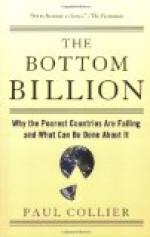been rendered unhappy by the undutifulness of his three daughters.
Among his works are “L’Allegro,” “Il Penseroso,” “Comus,” “Lycidas,”
“Paradise Lost,” “Paradise Regained,” and “Samson Agonistes.” The
Inner Light.
MORGAN, ANGELA. Born at Washington, D.C.
Educated under private tutors
and at public schools; took special work
at Columbia University. Began
early as a newspaper writer, first with
the Chicago American; then
with the Chicago Journal, and New
York and Boston papers. She is a
member of the Poetry Society of America,
The MacDowell Club, Three
Arts, and the League of American Pen Women.
She is one of the most
eloquent readers before the public to-day;
was a delegate to the
Congress of Women at The Hague 1915, at
which she read her poem
“Battle Cry of the Mothers.”
Her four books of poems are “The Hour Has
Struck,” “Utterance, and Other
Poems,” “Forward, March!” and “Hail,
Man!” and a fifth is soon to be
published. Her book of fiction “The
Imprisoned Splendor” contains well-known
stories ("What Shall We Do
with Mother?” “The Craving,”
“Such Is the Love of Woman,” and “The
Making of a Man"), some of which appeared
previously in magazines. A
novel is shortly to be published. A
Song of Life; A Song of
Thanksgiving; Grief; Know Thyself; Stand
Forth!; When Nature Wants a
Man; Work.
MORRIS, JOSEPH. Born in Ohio 1889. College
and university education;
professor of English and lecturer on literary
subjects; newspaper and
magazine contributor; connected with publishing
houses since 1917 in
various editorial capacities. A Lesson
from History; Borrowed
Feathers; Can You Sing a Song?; If You
Can’t Go Over or Under, Go
Round; Philosophy for Croakers; Swellitis;
The Glad Song; The
Unmusical Soloist; Two Raindrops.
N
NEIHARDT, JOHN GNEISENAU. Born near Sharpsburg,
Ill., Jan. 8, 1881.
Completed the scientific course at the
Nebraska Normal College 1897;
received the degree of Litt.D. from the
University of Nebraska 1917.
Declared Poet Laureate of Nebraska by
a joint resolution of the
Legislature, Apr. 1921, in recognition
of the significance of the
American epic cycle upon which he has
been working for eight years.
Winner of the prize of five hundred dollars
offered by the Poetry
Society of America for the best volume
of poetry ("The Song of Three
Friends”) published by an American
in 1919. Has been literary critic
of the Minneapolis Journal since
1912. Among his books are “The
Divine Enchantment,” “The
Lonesome Trail,” “A Bundle of Myrrh,”
“Man-Song,” “The River
and I,” “The Dawn-Builder,” “The
Stranger at
the Gate,” “Death of Agrippina,”
“Life’s Lure,” “The Song of
Hugh
Glass,” “The Quest,”
“The Song of Three Friends,” “The
Splendid
Wayfaring,” and “Two Mothers.”
Battle Cry, 148; Envoi, 196; Let
Me Live Out My Years, 127; Prayer
for Pain, 208.




